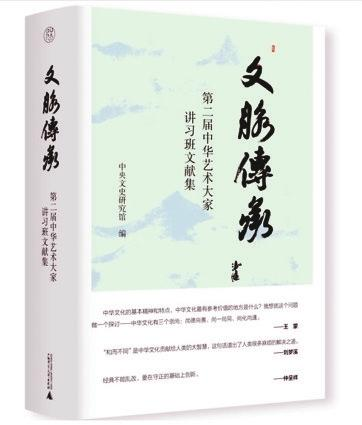
In recent years, some cities have lost their historical features while developing, and some traditional scenes of life have been destroyed. The historical streets, lanes, archways and other urban forms, as the cultural features to fully express the architectural and urban images, have been demolished in sections and blocks. In rural areas, a variety of traditional rural buildings and folk customs are also dying out. It has become an unrealistic hope in some areas to "enjoy the view of mountains and waters, and remind of the hometown". Such a development disconnecting with the history is unhealthy and does not meet the aspirations of the vast majority of Chinese people. On the contrary, making conscious efforts to preserve these traditional contexts will enrich the cities and villages with more local features. However, respect for historical traditions does not mean to be pedantic, or wedded to tradition.
As far as Chinese civilization is concerned, cultural features refer to the context of its origin. Priority should be given to inheritance and innovation of cultural features. For example, the Chinese classical literature has been flourishing for the past three thousand years, because new elements has been constantly added to the literature, thus creating the Book of Songs, Songs of Chu, Han Fu, pre-Qin prose, poetry of the Tang Dynasty, poetry of the Song dynasty, Yuan opera, and fictions of the Ming and Qing dynasties. The China Central Institute for Culture and History (CCICH) has long been committed to the study of the essence and aesthetic spirit of traditional Chinese art. Its recently compiled anthology, Inheritance of Cultural Features: Literature Collection of the Second Workshop of Chinese Artists, collecting lectures of cultural and artistic masters and students’ interaction, such as Wang Meng, Liu Mengxi, Zhong Chengxiang, Zheng Xinmiao, Wu Jiang, Chen Lai, Nima Zeren, and Long Rui. It aims to inherit the traditional culture, bring forth the new, and appreciate the elegance of the high-end culture and art.
This book mainly includes two parts. The first part contains the general courses on culture, including lectures such as the Beauty of Chinese Poetry by Zheng Xinmiao, Cultural Tradition and Cultural Confidence by Wang Meng, the Philosophical Foundation of Chinese Civilization by Chen Lai, the Beauty of Chinese Opera by Wu Jiang, Learning, Understanding and Practicing Xi Jinping’s Important Discourse on Literature and Art by Zhong Chengxiang, and "Harmony in Diversity" is the Great Wisdom that Chinese Culture Has Contributed to Mankind by Liu Mengxi. The second part contains specialized courses on art, including lectures, interactions and reviews of students’ works for poetry, calligraphy, portrait painting, bird-and-flower painting, landscape painting, and traditional opera. Ranging from study of poetry, painting and calligraphy to appreciation of opera, the book, with distinct themes and vivid descriptions, not only plays a positive role in inheriting the Chinese cultural features and promotes the creative transformation and development of traditional art, but also allows the readers to enjoy the essence and aesthetic spirit of Chinese traditional art, helping improve the readers’ aesthetic accomplishment and capability to appreciate art.
Taking Wang Meng’s Cultural Tradition and Cultural Confidence as an example, Wang talked about the feature of practicality of traditional Chinese culture. It is the feature that connects the traditional culture with our modern life, so that our traditional culture can play a positive role in the cause of modernization. Wang pointed out that Chinese culture has three basic characteristics: worshiping virtues and goodness, worshiping unity and harmony, and worshiping solution and communication. When interpreting the meaning of "worshiping unity and harmony", he made a comparison between Chinese and foreign cultural traditions and explained its connotation, that is, all the good things in the world are unified and all problems should be solved as the whole. As Fan Zhongyan (a statesman and litterateur in Northern Song Dynasty) said, “If you can't be a good prime minister, be a good doctor.” “Good prime minister” and “good doctor” may seem to be unrelated to each other, but both should care about the suffering of the people. In this sense, the two are essentially unified. This is the wonder of Chinese civilization.